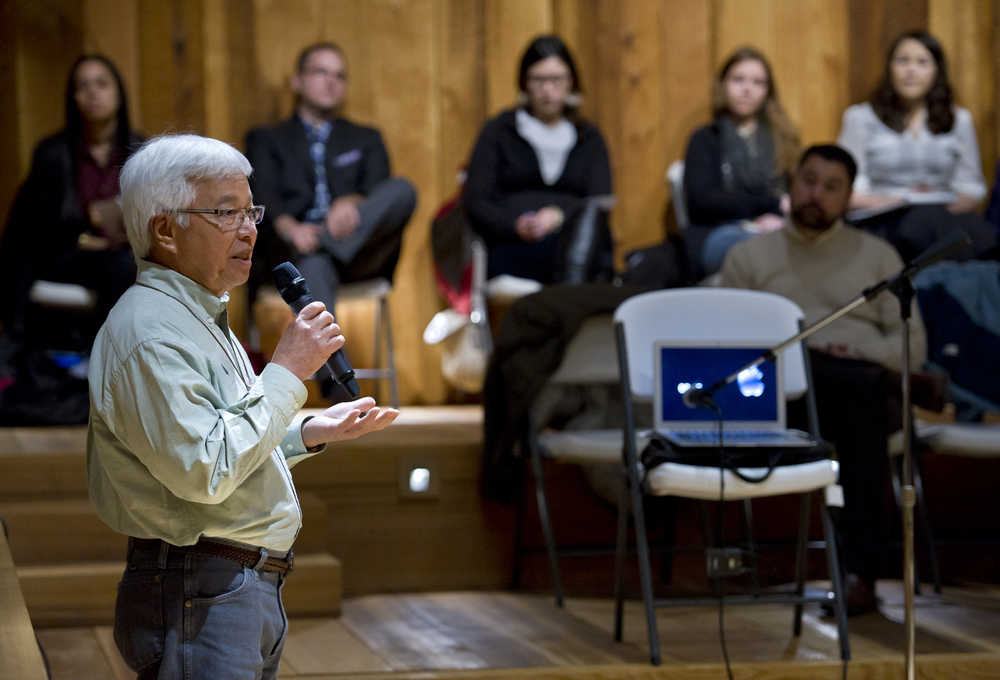“Even though we are from different tribes, we are all in the same canoe. We need to work together to preserve the languages of our ancestors,” said Tsimshian artist from Metlakatla David R. Boxley at the opening of the first Alaska Language Summit on Tuesday.
Boxley spoke to a crowd of about 50 people in the clan house of Sealaska Heritage Institute’s Walter Soboleff Building. Summit participants came from all over Alaska, including Barrow, Dillingham, Anchorage, Fairbanks and Kotzebue. Presenters traveled from Hawaii and Canada; one teleconferenced in from New Zealand.
Rep. Jonathan Kreiss-Tomkins, D-Sitka, was one of the summit’s organizers. He sponsored the 2014 bill that made 20 Alaska Native languages official state languages.
“One observation I had from the Native language bill was that people dedicating their lives to language revitalization in different parts of Alaska were not as connected as they could possibly be,” said Kreiss-Tomkins. “So people were independently developing models and practices in different regions of the state, and we felt there’s a lot of opportunity for people in different parts of Alaska to learn from each other.” He said speakers from Hawaii, Six Nations and New Zealand served as other good examples.
Language revitalization efforts around the state include developing pre-kindergarten learning materials, creating immersion childcare centers, online language classes and building “language nests” — spaces in the community to immerse in the language.
“Our language is a source of wealth,” said Edna MacLean, an Iñupiaq from Barrow. MacLean is on the North Slope Borough’s Iñupiaq History, Language, and Culture Commission, which was established in the 1980s.
MacLean said the North Slope is gradually losing its ancestral language. Something elders can do to turn that around, she said, is speak Iñupiaq to younger generations. “We need to look down and talk to our grandchildren in Iñupiaq. Otherwise, they’ll always be bystanders.” MacLean said. “We have to take it step by step. It’s very easy to respond back in English but tell yourself, ‘I have to answer this child in Iñupiaq.’”
MacLean plans to work with teachers in the school district and create a concrete language revitalization plan. “A system of communication needs to be developed between our institutions,” she said.
Xh’unei Lance Twitchell said summit participants should make a declaration that these are the last days of language loss.
“I think we’re entering an era where we can say, maybe a couple decades from now, ‘Hey, remember how much trouble we were in? Remember how scary it was to think we might lose our languages?’”
Twitchell is an Assistant Professor of Alaska Native Languages at University of Alaska Southeast. He’s also been laying the groundwork for a Tlingit immersion school in Juneau.
“The days are gone where we waited for someone to fix this, and we just did it ourselves. Schools don’t work? We build our own schools,” Twitchell said.
Kreiss-Tomkins hopes participants leave the summit energized to work together toward the goal of language revitalization. He said one possible outcome is to produce a Wiki, or a handbook, “for creating fluent speakers, language nests, master-apprentice programs, immersion schools.”

